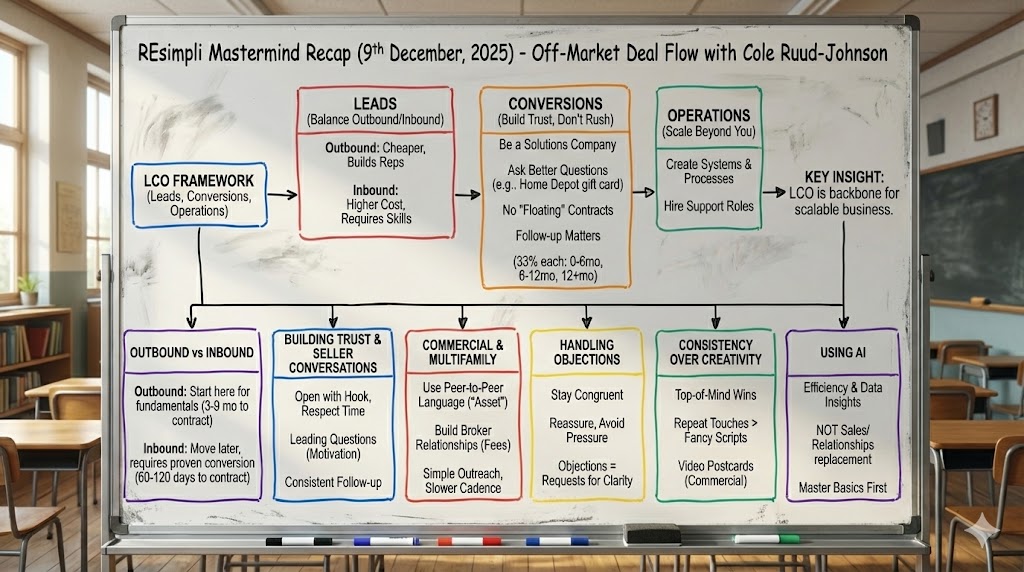What is a Commercial Real Estate Lawyer? Everything You Need to Know
In the complex, multifaceted world of commercial real estate that deals with properties sold for business purposes, the role of a commercial real estate lawyer is indispensable.
If working as a broker or agent, or even if you’re looking to purchase a business space, it’s vital to understand the roles of these legal professionals who stand at the crossroads of law and property business.
They play a pivotal role in navigating the legal intricacies of commercial property transactions, making them pillars of the industry.
Understanding what a commercial real estate lawyer does, their significance in the landscape of real estate, and the depth of their expertise is essential for anyone engaged in commercial property dealings.
What Does a Real Estate Lawyer Do in Commercial Dealings?
A commercial real estate lawyer specializes in the legal complications related to commercial properties, including ensuring transactions, disputes, leases, development, and financing are all above board and compliant.
These lawyers are not simply legal advisors; they act as strategic partners in commercial real estate endeavors, offering crucial guidance throughout the process of transactions to ensure they’re legally sound and aligned with clients’ best interests.
What Does Commercial Real Estate Law Concern?
The work of a commercial real estate lawyer encompasses a broad spectrum of activities, including drafting and negotiating contracts, handling zoning permits and land use issues, facilitating transactions, and representing clients in legal proceedings.
Commercial real estate attorneys work closely with investors, developers, brokers, and other stakeholders in dealings, providing actionable expertise that spans legal compliance, risk assessment, and transaction structuring.
What to Expect
This blog will provide a comprehensive overview of the role of commercial real estate lawyers, the services they provide, the importance of their involvement in commercial dealings, and insights into the wider legal landscape of commercial real estate.
Whether you’re a business owner looking for new space, a real estate developer looking to create a retail site, an investor looking to diversify your portfolio, or someone interested in real estate law, this guide will offer valuable insights into the critical role played by commercial real estate lawyers.
What Does a Commercial Real Estate Lawyer Do?
A commercial real estate lawyer plays a crucial role in property transactions and management, ensuring every stage of the process is completed above board.
These legal professionals ensure all aspects of dealings are conducted legally and efficiently, safeguarding the interests of their clients, whatever side of the deal they’re on.
Understanding the broad range of tasks in their role highlights their importance in any commercial real estate venture.
Importance of a Commercial Real Estate Lawyer
Legal Expertise: Commercial real estate transactions are generally more complex than residential dealings, requiring thorough legal understanding from all parties.
Commercial real estate law firms and lawyers ensure transactions comply with all legal requirements.
Risk Mitigation: Commercial real estate lease lawyers identify potential legal risks in transactions and advise on how to mitigate them, ensuring clients have protection from future legal disputes and financial losses.
Contract Negotiations and Drafting: These professionals play a vital role in negotiating, drafting, and reviewing contracts, ensuring that terms are favorable and protect their clients’ best interests.
Key Tasks of a Commercial Real Estate Lawyer
Transaction Facilitation: Commercial real estate lawyers assist in the buying, selling, and leasing of property.
They handle the various legal aspects of transactions, including drafting purchase agreements, drawing up lease contracts, and conducting general due diligence.
Title Examination and Insurance: Lawyers examine property titles for any issues that might get in the way of a transaction and arrange for sufficient title insurance to protect against future claims or legal suits.
Zoning and Land Use: Commercial real estate development lawyers offer valuable advice on local zoning laws and land use regulations, obtaining necessary permits for property development or use.
Environmental Compliance: They ensure that commercial property transactions and development schemes comply properly with environmental laws crucial to avoiding legal penalties and ensuring sustainable development.
Financing and Mortgages: In transactions involving long-term property financing plans, commercial real estate lawyers negotiate terms with lenders, prepare mortgage agreements, and handle closings.
Litigation: Lawyers represent clients in court for any disputes related to commercial real estate, including breach of contract, property disputes, and zoning issues.
Tax Advice: Commercial lawyers are qualified to advise on the tax implications of property transactions and help to structure deals in a tax-efficient manner.
Lease Management: They regularly advise landlords and tenants alike on lease matters, helping to negotiate lease terms and handle lease-related disputes in a civil manner.
A commercial real estate lawyer is integral to navigating the complexities of commercial property management.
Their expertise guarantees that all legal aspects of these transactions are handled efficiently, effectively, and with total compliance, providing peace of mind and security to their clients.
Whether engaged in a property sale, lease negotiation, or dispute resolution, the involvement of a skilled commercial real estate lawyer is invaluable in achieving successful outcomes.
Benefits of Hiring a Commercial Real Estate Lawyer
Enlisting the services of a commercial real estate law firm or lawyer offers numerous advantages to real estate professionals, business owners, and property landlords alike, especially in navigating the complex landscape of property transactions.
We’ve put together a list of the 12 key benefits of hiring a commercial real estate attorney:
Expert Guidance
Commercial real estate lawyers provide insights into the real estate process, market trends, and legal implications, helping clients make wise decisions.
Contract Review and Negotiation
Lawyers carefully review and negotiate the terms of contracts and agreements, ensuring they are fair and protect the client’s interests, potentially saving them from unfavorable terms.
Due Diligence
Commercial Real Estate Attorneys conduct due diligence, investigating the property’s legal status, checking for liens, and ensuring no hidden issues could affect the transaction.
Risk Management
By identifying potential legal risks in a transaction, lawyers help devise strategies that mitigate these risks, safeguarding clients from legal complications down the line.
Regulatory Compliance
Lawyers ensure all transactions comply accurately with relevant zoning, land use, and real estate laws, thus avoiding any pesky legal penalties or delays.
Dispute Resolution
In case of disputes, such as breaches of contract or issues with a property, a lawyer represents and advises clients, often achieving resolutions without costly litigation.
Title and Insurance Issues
Lawyers provide valuable guidance for resolving title issues and ensuring the correct title insurance is in place at every stage, protecting against future property claims.
Taxation Advice
Providing advice on property taxes[INSERT LINK TO PROPERTY TAX BLOG] and structuring transactions in a tax-efficient manner can offer significant financial benefits.
Closing Transactions
Attorneys facilitate the efficient closing of transactions, overseeing the finalization of agreements and ensuring that all legal and financial aspects are properly executed in good time.
Environmental Compliance
Commercial Real Estate Lawyers guide environmental practices, helping clients obtain necessary environmental clearances and avoid legal repercussions.
Property Development
For clients involved in commercial property development, lawyers assist in securing the proper permits, managing land use negotiations, and dealing with any construction-related legal matters.
Lease Management and Renewals
Attorneys play a vital role in managing and negotiating both lease terms and renewals, ensuring that the agreements remain beneficial, relevant, and in line with the client’s needs.
Hiring a commercial real estate lawyer is a strategic move for anyone involved in commercial dealings, providing legal protection and expert guidance, all while ensuring operational efficiency.
Their involvement can be the difference between a smooth, successful real estate transaction that benefits their clients and a problematic one fraught with legal challenges and financial risks.
How to Choose the Right Commercial Real Estate Lawyer
Selecting the right commercial real estate lawyer for your specific business requirements is crucial for successfully navigating the choppy waters of real estate transactions.
It’s not just as simple as posting a job description, which is why we’ve listed some key factors that any professional needs to consider when choosing the lawyer best suited to your real estate needs:
Specialized Experience
Look for a lawyer sufficient experience in the specific area of commercial real estate you are dealing with, whether leasing, development, financing, or sales.
The right lawyer should have a proven track record in handling cases with parallels to yours.
Expertise in Local and State Laws
Real estate laws can vary significantly from location to location. Choose a lawyer well-versed in the local and state laws relevant to your transaction.
Reputation in the Industry
Research the lawyer’s reputation within the industry by reading online reviews and testimonials or asking for references.
A lawyer with a stronger reputation is more likely to offer reliable and high-quality service.
Track Record of Success
Inquire about any of the lawyer’s previous cases and success rates.
A lawyer who has successfully navigated complex transactions and has a history of favorable outcomes for clients is always a more desirable choice.
Communication Skills
Effective communication is key. Choose a lawyer who is clear in their explanations and responsive to your queries. The ability to explain complex legal terms in understandable language is an important skill.
Negotiation Skills
Given that negotiation is a large part of any real estate transaction, your lawyer should be a skilled negotiator who can advocate for your requirements effectively on your behalf.
Professional Network
A lawyer with a strong professional network of realtors, business owners, and fellow attorneys can provide additional resources and connections that may be beneficial in your transaction.
Fee Structure
Understand the lawyer’s fee structure from the get-go. It should be transparent, reasonable, and aligned with the overarching market rates.
Avoid any hidden costs by discussing all fees at the outset.
Personal Rapport
Real estate is a personal business, so it’s important to choose a lawyer with whom you are comfortable working.
The right lawyer is someone who understands your vision and goals and whom you trust to make the right decisions on your behalf.
Availability and Accessibility
Ensure the lawyer you choose has enough time and resources to dedicate to your case.
They should be readily available and accessible whenever you need their guidance for whatever reason.
When choosing the right commercial real estate lawyer, thorough research and careful consideration of these factors are essential.
A meticulous approach to selection will guide you to a professional who can effectively represent your interests and facilitate a successful transaction.
Conclusion
The intricacies of commercial real estate transactions underscore the indispensable role of commercial real estate lawyers.
They’re not just advisors; they’re pivotal allies in navigating the complex waters of real estate dealings.
The Importance of a Commercial Real Estate Lawyer
Legal Expertise and Protection: They bring a wealth of legal knowledge, ensuring your transactions are compliant with the law, thus protecting you from legal pitfalls.
Risk Mitigation: Lawyers play a critical role in mitigating risks associated with commercial real estate transactions.
Strategic Negotiation and Contract Management: These lawyers draft contracts and negotiate to ensure that agreements are structured to favor your interests.
Handling Complexity: These transactions can be complex, involving multiple legal facets.
A skilled lawyer adeptly handles these complexities, making the process smooth and efficient.
Market Insight and Guidance: Beyond legal advice, commercial real estate lawyers provide insights into the wider market and strategic guidance on transactions.
Whether venturing into a new investment, managing a portfolio, or navigating a commercial lease, the guidance of a seasoned commercial real estate lawyer is invaluable.
Seeking out an attorney who is not only qualified but also experienced in the specific area of your real estate needs is crucial.
Remember when choosing your lawyer to:
- Prioritize Expertise
- Value the Right Partnership
- Do Your Research
A commercial real estate lawyer is a key player in ensuring the success and legality of transactions, providing peace of mind while equipping you with the necessary tools and knowledge to navigate the market effectively.
As you move forward, remember that the right legal counsel can be one of your most valuable assets.
For more insightful pieces about the real estate industry, visit our blog today.


